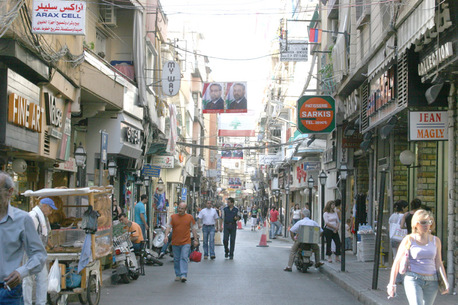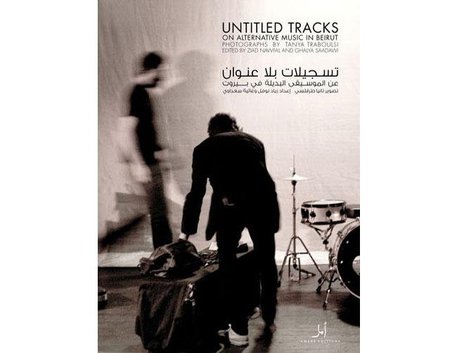Written by:
Philipp Schmickl
Share article:
A journey in many respects
It was a journey in many respects. First of all a physical transportation from Middle Europe into the Middle East; East seen from the West. And then, from a precarious situation in Vienna - which is characterized by questions like how to pay the next rent or the one after that and by answers that you do not want to hear, by refusal, ignorance and stupidity. But also by friendship and good work - into a dreamland in which I was living in a palace on the Levantine coast of the Mediterranean sea, in April, during a music festival where I met many familiar people and friends, in a city where so many things seem possible that I am unable to perform at home. But it was also a journey into a country where, for a European, unreal laws are reigning and are being executed, where the police looks like a squad of mercenaries and acts like it, they intimidate people, they lock them up and release them in exchange for ransom money. These policemen are different, they are massive, they are much bigger than the usual Beirut-person and they use their machine guns like the young women use their cellphones in the bar across the street from the police station.
How is it possible that through one flight I arrive in a completely different social sphere? That I turn from a working-class-child into a prince, or at least into one of the few guests of the Palace without paying for it? (And I am not even a musician playing at the festival). It became possible through art, the music and the people who are devoting themselves to it. To be more exact, it is the egalitarian attitude inside the scene, in Europe, in the Americas, Australia, Asia, the Middle East and so on. The music is free and exemplary. The more rules that are imported into the music or the more it is regulated, the more rigid hierarchies appear. This is not so much the case in improvised music, so that's also a reason why this music is called free. The people who organise concerts and festivals enable us to get in touch with her and also with people who are practicing and loving her, the music. Therefore and through the egalitarian attitude - although attitude not always translates into reality - relations can develop on one mutual level and I find myself in the music room of the Palace. It became possible through art.
But this change of stratum was not the main thing or the main reason for my journey; it is a detail which was very pleasant, a quite striking side effect, so to say. The actual reasons for my travels to the Irtijal Festival are always the music and the city with its people - those two ideas are inevitably linked in my thinking about this festival. If there was no music, I wouldn't come every year to Beirut and if Beirut wasn't Beirut, I may have missed one festival in between. The big roads and the small streets, the men selling coffee on the side-walk, the high-rise buildings and the wilderness in between, the beauty and yes, the fatalism of some people overcame me. And because I am not living here, I am keeping a very romantic image of all of this.
1355540787.jpg)

NIKON CORPORATION NIKON D700 (2832x4256).jpg)
1355516787.jpg)

NIKON CORPORATION NIKON D700 (4256x2832).jpg)